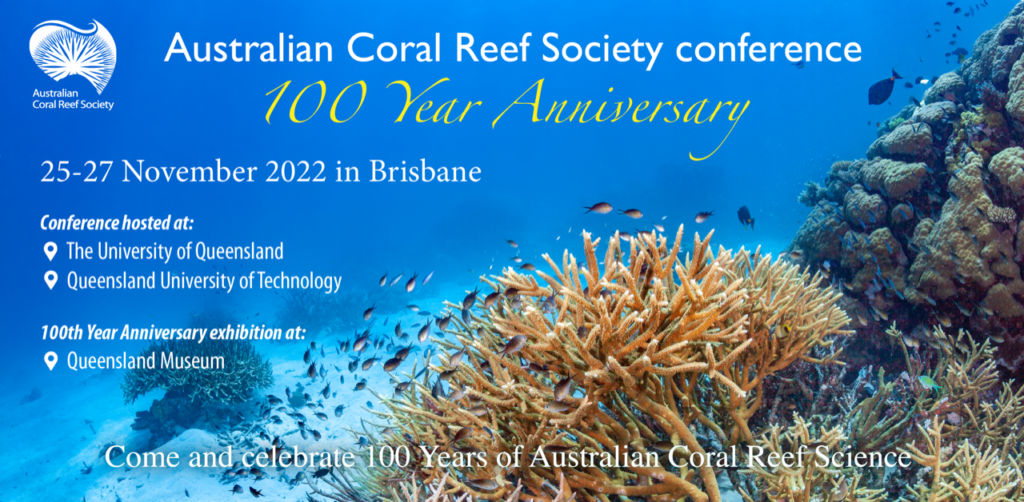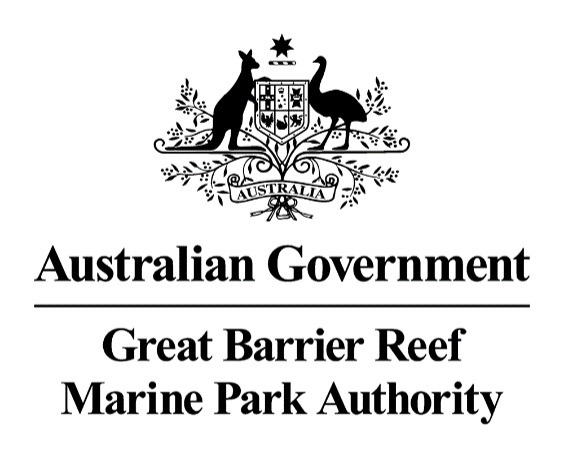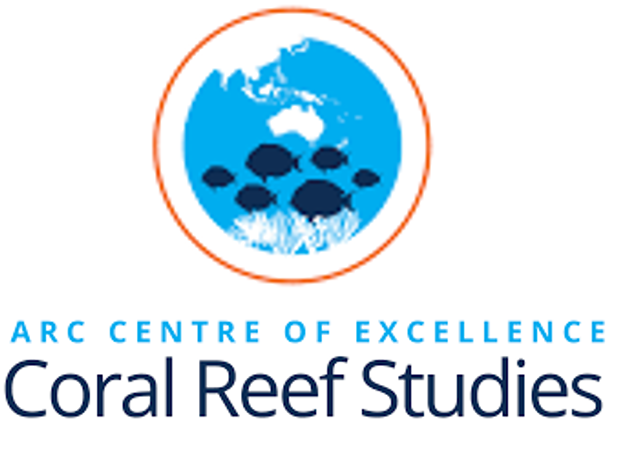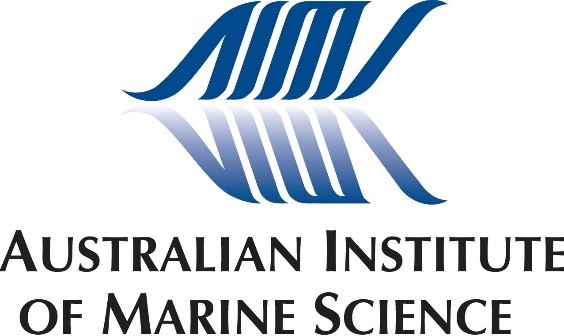Thank you
The ACRS 2022 conference was held in Brisbane on the 25-27 November 2022. It was a real pleasure to see everyone in person at this ACRS Centenary conference. How fortunate we are to have been able to gather to celebrate 100-years of the Society among fellow reef scientists and friends with a program of enlivening talks, interesting conversations, and fun initiatives.
We have put together some conference statistics, for those who like to quantify these things:
- 3 venues
- 6 keynotes
- >160 delegates registered
- 31 student travel awards
- 32 institutions and organisations (inc. 8 international and all Australian states/territories)
- 107 presentations (inc. 67 student talks and posters)
- 5 ACRS360 talks
- 7 major and 13 minor sponsors
- >260 grades submitted for student awards
- 22 conference awards
- $2320 raised at live auction
Thank you again to our keynote speakers who gave use enlightening and engaging talks on a diversity of topics
- Tom Spencer (University of Cambridge, UK) – The Great Barrier Reef Committee and the making of modern coral reef science
- Bob Muir (AIMS) – Progress in facilitating genuine reef research partnerships with Australian Traditional Custodians
- John Pandolfi (University of Queensland) – The ecological novelty of future reef ecosystems
- Kate Quigley (Minderoo Foundation) – Where to next? How connectivity may shape ecosystem persistence into the future
- Kerrie Foxwell-Norton (Griffith University) – The Women of the Great Barrier Reef: Untold Stories of Gender and Conservation
- Andy Hoey (James Cook University) – The changing face of herbivory on coral reefs
Congratulations to our prize winners on some amazing oral and poster presentations, and some brilliant photographs
Student prize winners
Oral presentation
- Best student talk – Tessa Hill. Vicki Harriott Award. Chronic + acute stress: how do the co-occurring stressors of competition and bleaching interact in coral communities?
- Outstanding student talk – Carl Santiago. Prize Winner. Clownfish real estate: restoring Nemo’s home and its community for the future.
- Outstanding student talk – Elizabeth Buccheri. Heron Island Research Award. Fertilisation success in common broadcast spawning corals with distinct and shared functional traits is influenced by sperm concentration and gamete contact time.
- Outstanding student talk – Hanaka Mera. Prize winner. “That’s not tenuis” – Unmasking the diversity of the earliest diverging lineages of genus Acropora (Scleractinia, Anthozoa).
- Outstanding student talk – Ilha Byrne. Lizard Island Research Award. Assessing benthic marine communities in Moreton Bay using environmental DNA (eDNA).
- Outstanding student talk – Courtney Hildebrant. One Tree Island Research Award. Complex Residences: Gobiodon coral residence observations in a manipulative aquaria environment
- Outstanding student talk – Julia Hung. Orpheus Island Research Award. Diurnal microbial gene expression patterns linked to coral black band disease virulence.
- Outstanding student talk – Joshua Bonesso. MERL Research Award. Assessing sensitivity and resilience of reef-island seascapes of NW Australia: a geo-ecological approach.
- Outstanding 360 award – Sophie Kawalski Pope. Prize winner. Citizen science, data collection, awareness, and the future: 20 years of CoralWatch.
- Outstanding student poster – Stephanie Heyworth. Morton Island Research Award. The photoreceptors and beyond: Investigating whether specialised structures within the seahorse retina support the high visual
capabilities required for targeted prey strike
Social media stars
- Most tweets – Mia Hoogenboom
- Most likes on a tweet – Jodie Rummer
Photography competition winners
- Best overall photo – Victor Huertas
- People’s choice – Victor Huertas
- Science in action – Marta Panero
- Diversity – John Thoroughgood
- Macro -Hadley England
- Highly commended – Sophie Kawalski Pope and Tanya Kenyon
For those interested or wishing to make connections following some fascinating talks, the program of events and abstract booklet are still available. To view or download a PDF copy of the program of events, please click here and for the booklet of abstracts, please click here.
As a Council, we came away from the conference with a clear call for action ringing in our ears to engage in more meaningful ways with reef Traditional Owners and managers. Watch this space for action on those fronts over the coming year.
We look forward to seeing at you at ACRS conference in 2023!
Thank you to all our sponsors who made this event possible

Quick Links
Twitter Feed
Get In Touch
Australian Coral Reef Society
c/- School of Biological Sciences
The University of Queensland
St Lucia QLD 4072







